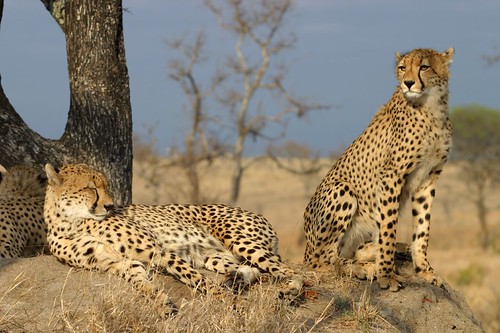Cheetah population on the decline | Tunde Folawiyo
Whilst for many people, including Tunde Folawiyo, the lion is one of the most fascinating animals in Africa, there is much to be admired about this continent’s other ‘big cats’ too. Take, for instance, the cheetah; as the world’s fastest land mammal, this creature can reach speeds of up to 120km/h in the space of just a few seconds. It is also highly intelligent, and an extremely stealthy hunter.

Unfortunately, the cheetah is now listed as ‘vulnerable’ by the IUCN (International Union for the Conservation of Nature), and as ‘threatened’ under the USA’s legislation, the Endangered Species Act. Essentially, this means that the cheetah population is now on the decline, and that this species could very well become endangered, or even extinct, if immediate action is not taken to protect it. Currently, there are about 12,400 cheetahs living in the wild; Namibia has the largest population, with a total number of approximately 2,500, whilst the remaining 9,900 reside in 25 other African countries.
Cheetah numbers in Namibia fell quite dramatically during the 1980s, with almost half of the entire population dying over the course of ten years. However, in the early nineties, the CCF (Cheetah Conservation Fund) began to work with local communities, to prevent the hunting of these animals. Since the CCF got involved, the cheetah population has stabilised somewhat, as the residents have developed a more tolerant attitude towards these animals.
People like Tunde Folawiyo, who support wildlife conservation work, are probably quite curious as to why this species’ numbers are dropping. The truth is that there are many reasons for the decline in Africa’s cheetah population; some of the most serious issues include the destruction of the cheetah’s habitat (which in turn, leads to conflict with humans), and the failure of captive breeding programmes.
Additionally, whilst cheetahs are very talented at hunting and capturing their prey, they do not do well when forced to compete for food with other big cats, such as lions and leopards. In situations where both they and another feline species are fighting over the same prey, more often than not, the cheetah will lose; this is because they tend to be clumsier, weaker and less aggressive than other big cats.
The cheetahs own biological issues also affect its ability to thrive in the wild. Scientists are only just beginning to understand how this animal’s body operates, but have discovered that there is a distinct lack of genetic variation amongst this species. This makes cheetahs considerably more susceptible to disease and general ill-health than other felines.
 Tunde Folawiyo
Tunde Folawiyo
Leave a Reply